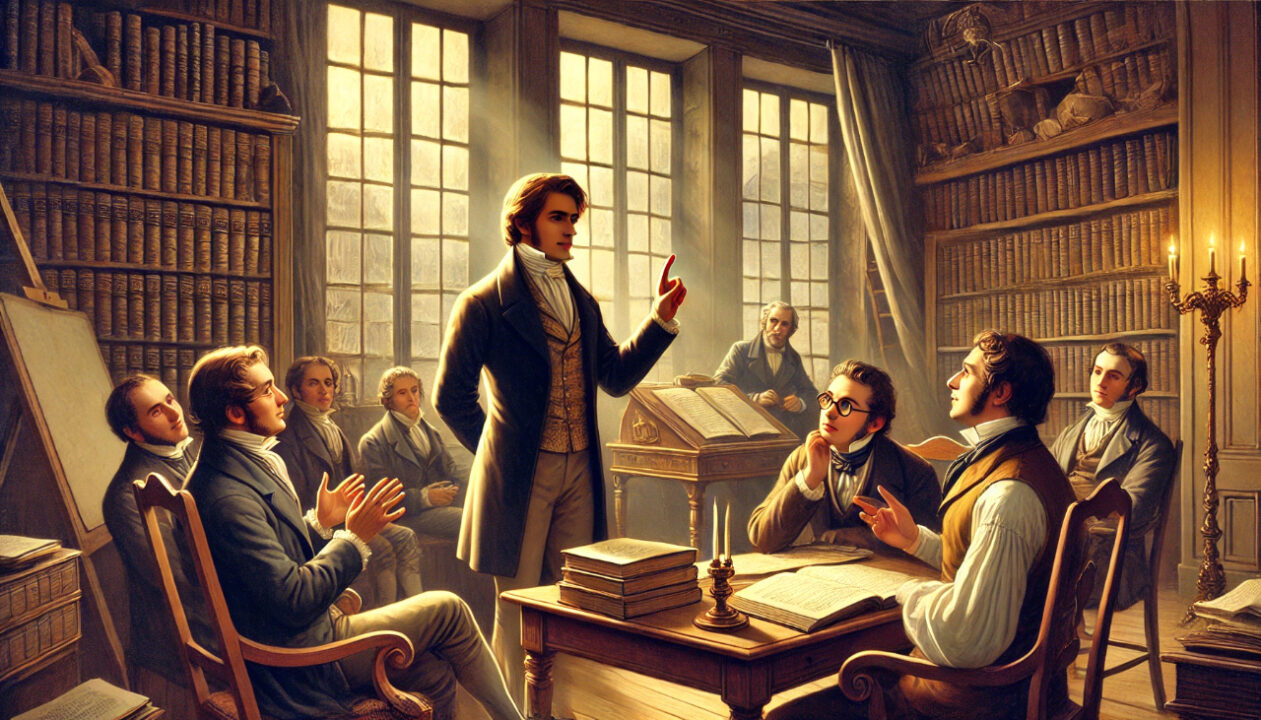Ferdinand Berthier was a monumental figure in the 19th century, whose profound impact on the deaf community and deaf education has reverberated through the years. He was not only an educator but also a fierce advocate for the rights and recognition of the deaf community in France and beyond. His legacy, although deeply rooted in the past, continues to inspire educators and activists alike, serving as a reminder of the strength of advocacy, education, and inclusivity.
Who Was Ferdinand Berthier?
Ferdinand Berthier was born in 1803 in the small town of Louhans, France. Deaf from birth, Berthier grew up at a time when society had limited understanding of the deaf community, often relegating deaf individuals to the fringes of society. However, his personal tenacity and sharp intellect set him apart, leading to a path of education that would ultimately shape his life and the future of deaf education.
You May Also Like: CBS Announces Christopher Cousins Joining Y&R Cast
Berthier became a student at the National Institute for Deaf-Mutes in Paris, an institution that would become pivotal to his future. At the time, this institute was one of the few places in the world where deaf individuals could receive formal education, largely thanks to the pioneering work of Abbé de l’Épée, who laid the foundation for deaf education in France. Berthier thrived in this environment, not only as a student but later as a teacher and administrator.
The Early Life of Ferdinand Berthier
Berthier’s early years in Louhans were marked by the challenges typical of the deaf in the early 19th century. Despite these hardships, his family’s support enabled him to overcome many of the barriers he faced. His enrollment at the National Institute for Deaf-Mutes was a turning point, offering him not only an education but also a community that understood and valued his abilities.
Throughout his early education, Berthier became particularly skilled in sign language, which would later serve as a key tool in his teaching career. He also developed a deep appreciation for French literature and philosophy, which he would incorporate into his advocacy for deaf individuals’ intellectual and social rights.
Berthier’s Role at the National Institute for Deaf-Mutes
Ferdinand Berthier’s long career at the National Institute for Deaf-Mutes began as a student and eventually saw him rise to the position of professor. His role at the institute was pivotal. As one of the first deaf individuals to take on a teaching role in the institute, Berthier offered a unique perspective to his students. His understanding of their challenges, combined with his educational insights, made him a beloved and highly effective teacher.
Berthier’s passion for teaching and advocacy extended far beyond the walls of the institute. He wrote extensively on deaf culture and education, advocating for the intellectual capabilities of deaf individuals at a time when societal perceptions were largely dismissive of their abilities. His writings were instrumental in shifting the conversation around deafness, promoting the idea that the deaf were not only capable but deserved full participation in intellectual and social life.
The Establishment of the First International Congress for the Deaf
One of Ferdinand Berthier’s most lasting contributions was his role in organizing the first International Congress for the Deaf in 1834. This groundbreaking event brought together deaf educators, students, and advocates from across Europe to discuss the future of deaf education, rights, and culture.
The congress was not merely an academic exercise; it represented a significant step forward in the recognition of the deaf community as a distinct cultural and linguistic group with its own needs and rights. Berthier’s leadership in this effort demonstrated his deep commitment to the cause of deaf advocacy, and it solidified his reputation as a leading figure in the international deaf community.
Advocate for the Rights of Deaf Individuals
Throughout his life, Ferdinand Berthier tirelessly advocated for the rights of deaf individuals, both in France and internationally. His efforts were particularly focused on the recognition of sign language as a legitimate and essential form of communication. In an era when oralism—the practice of teaching deaf individuals to speak and lip-read—was gaining traction, Berthier remained a steadfast supporter of sign language, arguing that it was not only a natural form of communication for the deaf but also a key element of deaf culture and identity.
His advocacy efforts went beyond the realm of education. Berthier was also a staunch supporter of the political and social rights of the deaf. He believed that deaf individuals had the same potential for intellectual and social contributions as their hearing counterparts, and he worked to ensure that they were afforded the same opportunities for advancement.
Berthier’s Contributions to Literature and Education
Beyond his advocacy work, Ferdinand Berthier was a prolific writer. He published numerous works on deaf education and culture, offering insights into the unique challenges and opportunities faced by the deaf community. His writings were instrumental in shaping the discourse around deafness, and they continue to be studied by scholars of deaf history and education.
Berthier’s literary contributions were not limited to deaf education. He was also an accomplished writer in the broader context of French literature and philosophy, contributing to intellectual discussions of his time. His dual identity as a deaf individual and a scholar gave him a unique perspective on the intersection of language, culture, and education.
Legacy and Impact on Deaf Culture
Ferdinand Berthier’s legacy in the deaf community is immeasurable. His work in education, advocacy, and literature helped to lay the foundation for modern deaf culture and education. Today, Berthier is remembered not only as a pioneer in the field of deaf education but also as a trailblazer in the fight for the recognition of deaf individuals’ rights and abilities.
His work continues to inspire educators, advocates, and students alike. Modern deaf education programs, both in France and around the world, owe a great debt to Berthier’s groundbreaking work. His commitment to the preservation of sign language and the promotion of deaf culture helped to ensure that the deaf community would not be relegated to the margins of society but would instead be recognized as a vibrant and valuable part of the broader cultural fabric.
Ferdinand Berthier’s Enduring Influence
The enduring influence of Ferdinand Berthier can be seen in the continued vitality of the deaf community today. His efforts to promote the use of sign language and to advocate for the rights of deaf individuals laid the groundwork for much of the progress that has been made in the field of deaf education and advocacy.
Berthier’s life is a testament to the power of education and advocacy in effecting social change. His work reminds us that progress is possible when individuals are willing to challenge societal norms and fight for the rights of marginalized communities.
FAQs
What was Ferdinand Berthier known for?
Ferdinand Berthier was known for being a pioneering deaf educator and advocate for the rights of the deaf community.
How did Ferdinand Berthier contribute to deaf education?
Berthier contributed to deaf education by teaching at the National Institute for Deaf-Mutes, organizing the first International Congress for the Deaf, and advocating for sign language and deaf rights.
What is Ferdinand Berthier’s legacy?
Berthier’s legacy is his transformative impact on deaf education and his tireless advocacy for the recognition of deaf individuals’ intellectual and social rights.
How did Ferdinand Berthier support sign language?
Berthier supported sign language by advocating for its use as the primary form of communication for deaf individuals, promoting it as essential to deaf culture and identity.
What role did Berthier play in the first International Congress for the Deaf?
Ferdinand Berthier organized the first International Congress for the Deaf in 1834, bringing together educators and advocates to discuss the future of deaf education and rights.
Why is Ferdinand Berthier considered an advocate for the deaf community?
Berthier is considered an advocate for the deaf community because of his work in promoting the rights, education, and recognition of deaf individuals, particularly through his support of sign language and his leadership in the international deaf community.





